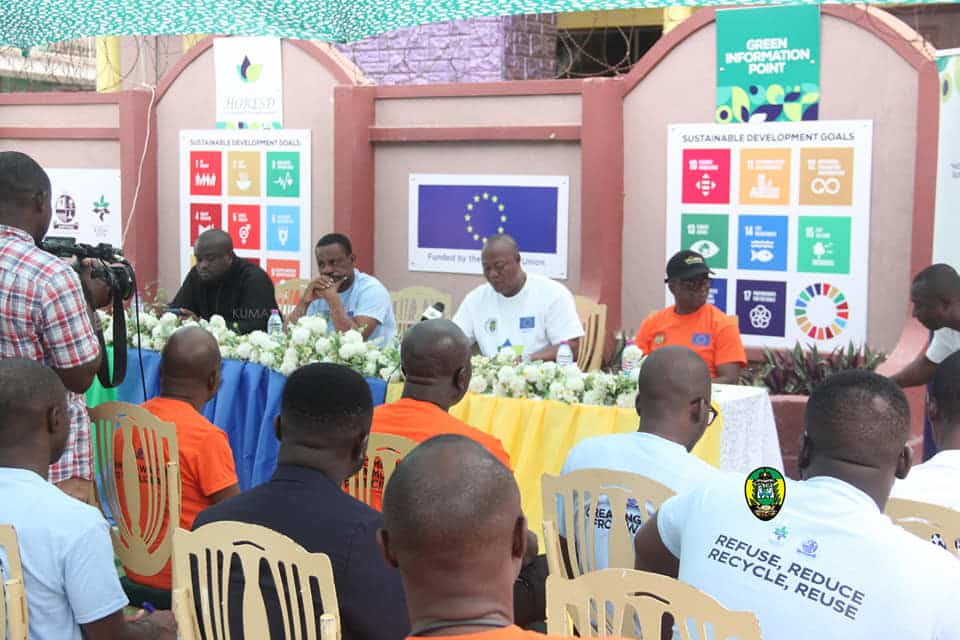To encourage the people of Kumasi to dispose of solid waste in a responsible and useful manner. This is the ambition of the Kumasi Metropolitan Assembly (KMA) which has just inaugurated a “green information point” in this city of 3.63 million inhabitants. This is a structure where the population can be equipped with the various techniques for transforming this waste, particularly for the production of fertiliser through composting units, as well as for the production of electricity.
The objective is to reduce solid waste pollution in the city of Kumasi. The KMA believes that the “green information point” will also promote the creation of jobs for young people in the field of recycling.
A “green information point” opened in Kumasi©KMA
Support from the European Union
The initiative on solid waste recycling in Kumasi is part of the Holistic Strengthening for Sustainable Development (HORESD) project which aims at sustainable waste management in Kumasi. “The focus will be on integrating the disadvantaged or those at risk of social exclusion, including women, youth and the disabled,” said Irchad Razaaly, the ambassador and head of the European Union (EU) delegation to Ghana in March 2022, when the €2.5 million grant agreement for the project was signed.
Beyond incivism, pollution in Kumasi is also linked to a problem of governance. Thus, within the framework of the HORESD project, the capacities of the local authorities responsible for waste management will be strengthened, both at the structural level and in the decision-making systems.
Read also –
The KMA estimates that it will take 30 months to complete the sustainable development project. The initiative will also receive funding from the Mancomunitat de la Ribera Alta in Spain and the Chamber of Praia in Cape Verde.
Inès Magoum
